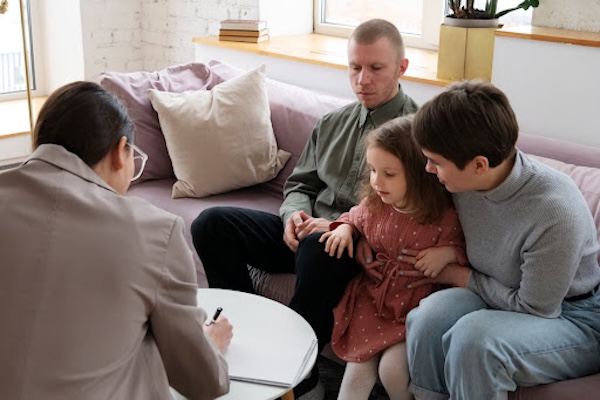Family Law Issues: Understand Your Domestic Relations Rights

NWLS offers legal support to low-income individuals and families navigating domestic relations in Northwestern Pennsylvania. Understanding your rights in family law is essential for fostering healthy relationships and ensuring the well-being of all family members involved.
Common Family Law Issues
Divorce
Divorce is the legal dissolution of a marriage by a court. The process involves various legal procedures, including the division of assets and (if applicable) child custody arrangements.
Rights and Responsibilities
- Equitable Distribution: Pennsylvania follows the principle of equitable distribution, meaning marital property is divided fairly (though not necessarily equally) based on factors like the length of the marriage and each spouse's economic circumstances.
- Legal Representation: Both parties have the right to seek legal representation to protect their interests throughout the divorce process.
Child Custody
Child custody involves determining which parent will be responsible for the care and decision-making of a child. There are several types of custody, including:
- Legal Custody: The right to make major decisions on behalf of the child.
- Sole Legal Custody: One individual has exclusive legal custody.
- Shared Legal Custody: More than one individual shares legal custody.
- Physical Custody: Physical ownership and control of the child.
- Sole Physical Custody: One individual has exclusive physical custody.
- Primary Physical Custody: Custody for the majority of the time.
- Partial Physical Custody: Custody for less than a majority of the time.
- Shared Physical Custody: Significant periods of custody shared by more than one individual.
- Supervised Physical Custody: Custodial time is monitored by an agency or designated adult.
- Third-Party Custody: Custody rights for someone other than the child's biological or adoptive parents.
- In Loco Parentis: A third party who has assumed physical custody of a child for a substantial period can seek custody rights.
- Standing: The legal right to be part of a custody suit, which third parties must establish under specific conditions.
Rights and Responsibilities
- Best Interests of the Child: Custody decisions are made based on the best interests of the child, considering the child's needs, parental duties, and the child's relationship with each parent.
- Visitation Rights: Non-custodial parents have the right to reasonable visitation unless it is determined to not be in the child's best interest.
- Modification of Orders: Parents can request a modification of custody orders if there is a significant change in circumstances.
Child Support
Child support is a financial obligation paid by the non-custodial parent to the custodial parent to contribute to the child's living expenses.
Rights and Responsibilities
- Calculation of Support: Child support is calculated based on both parents' incomes and the child's needs.
- Enforcement: Custodial parents can seek enforcement of child support orders if payments are not made.
- Modification: Either parent can request a modification of child support if there is a significant change in financial circumstances.
Domestic Violence
Domestic violence is abusive behavior in a domestic setting, such as marriage or cohabitation. It can include physical, emotional, and psychological abuse, as well as stalking. Note that justified use of force in self-defense is not considered abuse.
Rights and Responsibilities
- Protection Orders: Victims can seek protection orders, known as Protection From Abuse (PFA) orders, to prevent further abuse and ensure their safety.
- Legal Recourse: Victims can pursue legal action against the abuser, which may include criminal charges or civil lawsuits.
- Support Services: Victims have access to support services — such as counseling and shelters — to assist in recovery or safety planning.
Adoption
Adoption is the legal process by which an individual or couple becomes the legal parent(s) of a child, permanently transferring all rights and responsibilities from biological parents.
Rights and Responsibilities
- Consent: Biological parents must provide consent for the adoption, except in cases where parental rights have been terminated.
- Home Study: Prospective adoptive parents must undergo a home study to ensure they can provide a suitable environment for the child.
- Finalization: Adoption is finalized through a court process, granting the adoptive parents all legal rights and responsibilities of parenthood.
How NWLS Helps

Telephone Advice
NWLS offers legal advice over the phone for various family law issues. Clients can contact the Central Intake Unit (CIU) at 800-665-6957 (or 814-452-6957 for the Erie area) or apply online to determine eligibility for free legal help.
If eligible, an attorney will provide legal advice over the phone and follow up with a letter and materials confirming the advice given. In some cases, clients may be scheduled for an in-person appointment at a nearby office for further assistance.
Pro Se Custody Clinics
We conduct clinic-type programs for eligible clients who wish to initiate or modify custody orders. Led by NWLS staff attorneys, these clinics provide clients with guidance, blank forms, and instructions for filing a pro se action.
Clinics are available in several counties, including Erie, Crawford, McKean, Mercer, Venango, Warren, Potter, Elk, Cameron, and Forest. Interested clients must contact the CIU to apply (walk-ins are not accommodated).
Direct Representation
For clients who meet eligibility requirements, NWLS offers direct legal representation in certain family law cases. This ranges from limited to extended representation, depending on the issue, case facts, and staffing.
Clients may schedule an appointment at the office nearest to their county of residence to meet with an attorney in person. In some cases, paperwork can be completed and submitted via mail, email, or fax.
Private Attorney Involvement and Pro Bono Programs
We collaborate with private attorneys to provide pro bono representation to low-income individuals. Through the Legal Aid Volunteer Attorney (LAVA) Program, NWLS coordinates volunteer attorneys to offer free representation in specific cases.
Outside Erie County, Judicare panels allow private attorneys to accept referred cases for a minimal fee. All applicants must meet income eligibility requirements, with screening conducted through the CIU.
Our Process for Evaluating Family Law Cases
At NWLS, we have a structured approach to determine how we can best assist you with your family law needs. Here's an overview of our process:
- Initial Contact: When you reach out to us, a screener from our CIU will be your first point of contact. They will collect essential details about your situation to understand your needs better.
- Eligibility Assessment: The screener will review your financial situation and the specifics of your case to see if you qualify for our services based on our eligibility criteria.
- Merit Evaluation: If you meet the eligibility requirements, a CIU attorney will then assess the strength of your case. This evaluation checks if your case has a solid legal foundation and aligns with the services we can offer under our funding guidelines.
- Scheduling for Representation: Should your case be deemed meritorious, we will arrange for you to receive direct representation. This will take place at one of our six offices located in the county where you reside, allowing you to meet with an attorney face-to-face.
- Telephone Advice: In instances where your case does not qualify for direct representation, our CIU attorney will provide you with legal advice over the phone. This guidance will help you understand your legal rights and suggest the best course of action for your situation.
Apply for Family Legal Aid Now
If you are facing family law issues, contact NWLS to see if you are eligible for assistance.
Call Us: (814) 452-6949 | Apply Online | Family Law Resources
Disclaimer: This information is for general educational purposes only and does not constitute legal advice. It is essential to consult with an attorney for specific legal guidance. For more detailed information and assistance, please reach out to us - we are here to help you navigate your family law issues.
However, you will not be a client of Northwestern Legal Services unless we contact you and tell you that your case is accepted.

